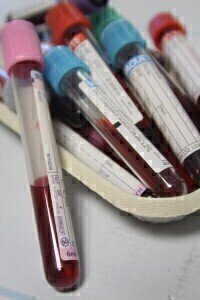News
New guidelines on Crohn's disease released by NICE
Oct 11 2012
Guidance on the role of new and established treatments for the management of Crohn's disease in adults and children has been published by The National Institute for Health and Clinical Excellence (NICE).
Mainly affecting the gastrointestinal tract (gut), Crohn's disease is a chronic inflammatory condition that can develop at any age. However, it most commonly develops between the ages of 15 to 30, with approximately a third of patients diagnosed before 21 years old.
Marginally affecting more women than men, the cause is unknown, but is twice as likely to develop in smokers.
In the UK alone, there are presently around 115,000 people affected by the disease and between 3,000 to 6,000 new cases diagnosed every year.
Symptoms include recurring diarrhoea, abdominal pain and cramping (particularly after eating), blood and mucus in faeces, weight loss and extreme tiredness. It can lead to infertility and a delay in puberty and growth in children.
There may be periods of time where symptoms are mild or non-existent, however flare-ups occur, where symptoms can become extreme.
Numerous drugs have been licensed for use in treating the condition over the last ten years.
Azathioprine or mercaptopurine can be offered as maintenance treatment and glucocorticosteroids can be offered to encourage remission in people with Crohn's disease.
The new guidance covers the use of these drugs in the care pathway for Crohn's disease and is aimed at all healthcare professionals.
The guidance states to offer monotherapy with a conventional glucocorticosteroid (prednisolone, methylprednisolone or intravenous hydrocortisone) to encourage remission in people with a first occurrence or a single inflammatory exacerbation of the illness in a 12 month period.
Also discuss with patients and their carer if suitable, their choices for managing it when they are in remission, including both no treatment and treatment.
The discussion should include the danger of inflammatory exacerbations, with and without drug treatment. Also talk about the possible side effects of drug treatment and record the person's views in their notes.
Offer azathioprine or mercaptopurine as monotherapy to continue remission when formerly used with a conventional glucocorticosteroid or budesonide to induce remission.
Think about surgery as a substitute to medical treatment early in the course of the disease for patients whose disease is restricted to the distal ileum (small intestine).
Take into account the benefits and risks of medical treatment and surgery, the risk of recurrence after surgery and individual preferences and any personal or cultural considerations and record them in their notes.
Offer adults, children and young people, their parents or carers, age-appropriate multidisciplinary support.
This support should help them to handle any concerns about the disease and its treatment, including concerns about living with a chronic illness, body image and attending school.
"It is important that there are clear, evidence-based guidelines in place that can help improve the care offered to people with Crohn's disease," said Professor Mark Baker, director of the Centre for Clinical Practice at NICE.
Posted by Neil Clarke
Digital Edition
Lab Asia Dec 2025
December 2025
Chromatography Articles- Cutting-edge sample preparation tools help laboratories to stay ahead of the curveMass Spectrometry & Spectroscopy Articles- Unlocking the complexity of metabolomics: Pushi...
View all digital editions
Events
Jan 21 2026 Tokyo, Japan
Jan 28 2026 Tokyo, Japan
Jan 29 2026 New Delhi, India
Feb 07 2026 Boston, MA, USA
Asia Pharma Expo/Asia Lab Expo
Feb 12 2026 Dhaka, Bangladesh



















